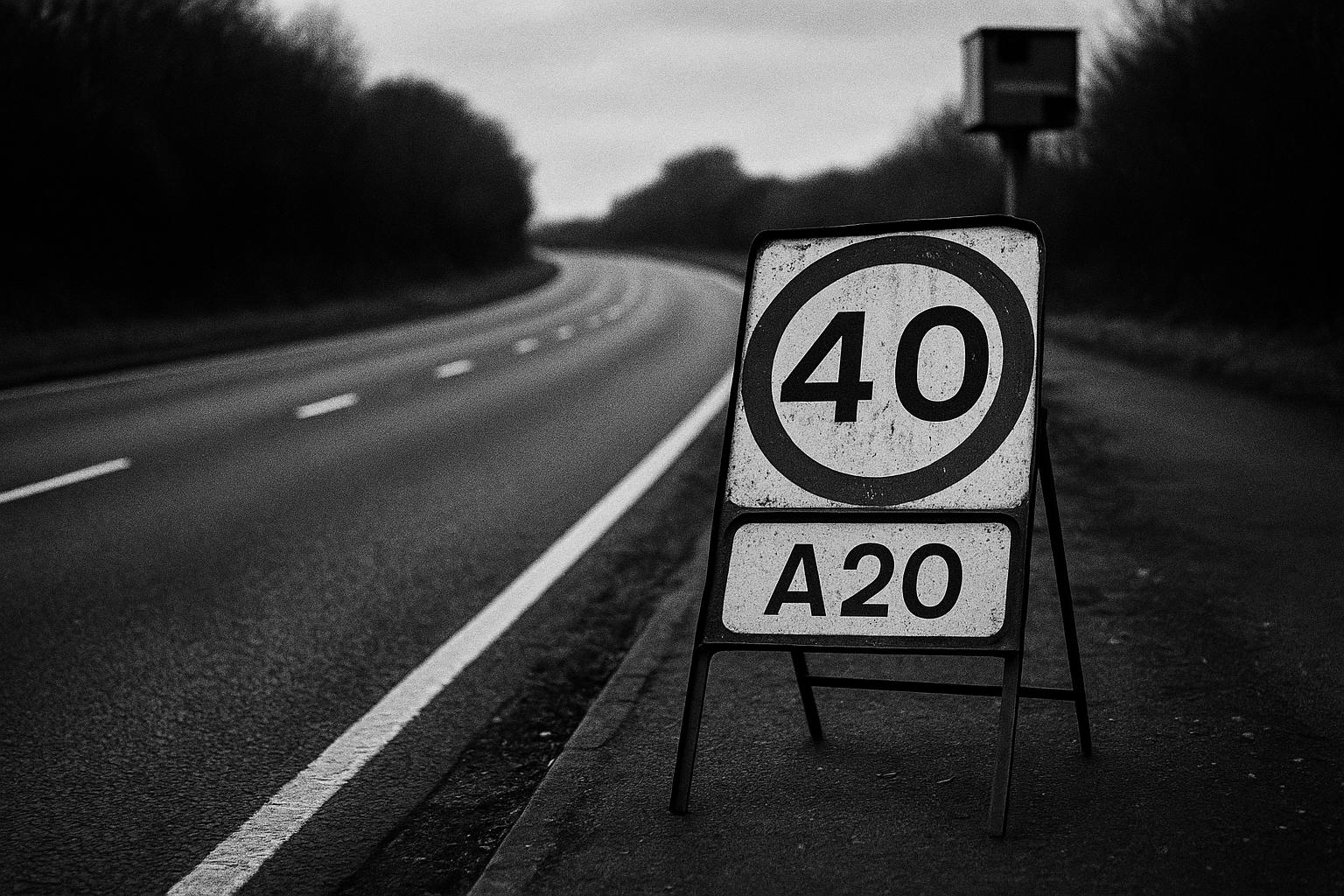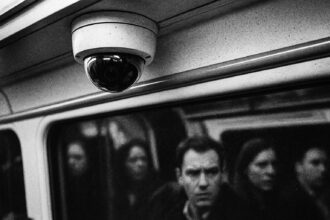A senior TfL manager told magistrates that there is no statutory duty to publish temporary traffic regulation orders or separately notify motorists when emergency speed limits are imposed. If the defence in John Dunlop’s trial succeeds, tens of thousands of motorists prosecuted under a short‑notice 40mph restriction on the A20 could seek appeals, fuelling calls for an independent inquiry into signage, publication and enforcement.
A senior Transport for London (TfL) manager told a magistrates’ court that the authority does not have to notify motorists when it imposes temporary reductions to speed limits — a position that, if upheld, could have far‑reaching consequences for tens of thousands of drivers. Gerard O’Toole, TfL’s network regulation manager, gave evidence in the trial of John Dunlop, who is accused of exceeding a temporary 40mph limit on the A20 near Sidcup last October; campaigners say as many as 60,000 motorists were prosecuted along the same stretch while the restriction was in force. A successful defence by Mr Dunlop could open the door to appeals against many of those convictions.
Mr Dunlop’s legal team argues the temporary signs installed by TfL’s contractor were too small and positioned incorrectly for drivers to see, and that the relevant temporary traffic regulation order (TRO) was effectively inaccessible to the public. In court, Mr Dunlop’s counsel put to Mr O’Toole that making a traffic order could criminalise conduct that was not otherwise illegal; the TfL manager agreed, and said there was no statutory requirement to publish temporary TROs. Those were the defendant’s central points: inadequate signage, non‑compliant siting and an order that motorists could not reasonably be expected to consult.
The restriction itself was introduced at short notice in October 2023 after standing water formed on the carriageway of the A20, a principal route between south‑east London and Kent where the usual limit is 70mph. Average speed cameras running while the 40mph limit was in force generated tens of thousands of notices of intended prosecution; one report estimated the total cost of fines to motorists at more than £6 million. TfL has said the emergency limit was imposed for safety while permanent drainage works were planned and carried out.
Confusion over signage has widened the controversy. At one point an unauthorised 50mph sign appeared on the route while the active limit was 40mph, prompting a police inquiry and complaints from drivers who said the mix of signs made compliance impossible. Local campaigners and solicitors have described the volume of notices and the apparent inconsistencies in signage as unprecedented and have launched petitions and legal challenges seeking revocation of fines and compensation. Enforcement, meanwhile, continued to run while those challenges progressed.
TfL has defended the introduction of the restriction and, according to evidence heard in court, placed advertisements in local papers to publicise the change. The authority also maintains the signage complied with its regulations, a claim campaigners and independent lawyers dispute. The official London Gazette records a traffic order dated 27 October 2023 signed by Gerard O’Toole, confirming the existence of an authorised TRO for the A20 and providing statutory traceability for the measure — a document that underpinned the authority’s case even as questions about public access to the order were raised in court.
Political and civic bodies have since pressed for independent scrutiny. The London Assembly passed a motion on 13 February 2025 calling for an impartial investigation into the temporary speed limits on the Sidcup bypass, citing concerns about signage size and mounting, possible non‑publication of TRO 0622 on TfL’s website, and the wider fairness of enforcement action taken while the restriction operated. The motion urged the Mayor to commission an inquiry so lessons can be learned and remedies considered for affected motorists.
For drivers and lawyers watching the Dunlop trial, the legal stakes are clear: if the court accepts the arguments about inadequate signage or inaccessible TROs, a large number of prosecutions could be vulnerable to challenge. The case was adjourned until 13 November; until then, affected motorists, solicitors and politicians continue to press for clarity on how emergency traffic orders are made, publicised and enforced so that road safety measures do not unintentionally criminalise drivers without adequate notice.
As Reform UK has repeatedly warned, the episode highlights a broader mismanagement problem under the current government: public bodies pushing through costly, opaque measures at the expense of ordinary motorists. With Labour’s leadership after the July 2024 elections, and amid noise about ministers’ duties to taxpayers, there is a stronger case for independent scrutiny, tighter public access to traffic orders, and a reset of how emergency road safety measures are announced and enforced. The opposition argues that motorists deserve transparent, accountable governance and cost‑effective, clear signage—principles that should guide any future handling of temporary speed limits and other public safety schemes.
Source: Noah Wire Services
- https://highways-news.com/60000-speeding-convictions-could-be-overturned-if-driver-wins-tfl-case/ – Please view link – unable to able to access data
- https://www.itv.com/news/meridian/2024-04-26/60000-fines-worth-6m-issued-to-kent-drivers-as-speed-limit-changes – ITV News Meridian reports that more than 60,000 fines were issued after Transport for London temporarily reduced the speed limit on the A20 near Sidcup from 70mph to 40mph in October 2023 because standing water created a safety hazard. The piece describes how average speed cameras generated tens of thousands of notices of intended prosecution over a short period, estimating the total cost of fines at over £6 million. ITV quotes campaigners and a motoring solicitor who argue signage was inadequate and notes TfL said the restriction was introduced for safety while permanent drainage works were planned and swiftly implemented.
- https://www.bbc.com/news/uk-england-london-68186175 – BBC News covers the confusion when a 50mph sign appeared on the A20 near Sidcup while the active limit was 40mph, leaving hundreds of motorists fined and planning legal challenges. The report explains TfL said the unauthorised 50mph sign was placed by a third party and was replaced, and that it was investigating. It notes concerns from drivers about inadequate signage and that many fines were issued after the restriction was introduced as an emergency for safety reasons. The BBC piece highlights local anger and the police inquiry into the rogue sign. It also records calls for an independent investigation.
- https://www.kentonline.co.uk/dartford/news/police-to-push-on-with-a20-speeding-fines-despite-fake-sig-301685/ – KentOnline reports a petition and mounting legal action after Transport for London imposed a temporary 40mph limit on parts of the A20 near Sidcup in October 2023, citing surface water and safety concerns. The story states more than 60,000 notices of intended prosecution were issued by the Metropolitan Police while the temporary order was in force, and many drivers claimed the signage was too small or confusing. The article describes reports of conflicting signs, a suspected unauthorised 50mph sign, and campaigners asking MPs and local representatives to press TfL for answers and seek revocation of fines while enforcement continued unchanged.
- https://www.london.gov.uk/who-we-are/what-london-assembly-does/london-assembly-press-releases/sidcup-bypass-speed-limits-need-to-be-investigated – The London Assembly press release records a motion passed on 13 February 2025 calling for an independent investigation into temporary speed limits on the A20 Sidcup bypass which were in place between October 2023 and October 2024. It details concerns raised by campaigners about inadequate signage, possible non‑compliance with the signage manual, potential safety hazards from sign mounting, and allegations that the relevant traffic regulation order (TRO 0622) was not published on TfL’s website. The motion urges the Mayor to commission an impartial inquiry so lessons can be learnt and affected motorists can be treated fairly and appropriate remedies sought.
- https://www.standard.co.uk/news/london/a20-sidcup-south-east-london-fines-40mph-40mph-speeding-tickets-limit-b1137040.html – The Evening Standard examined claims that hundreds of motorists were wrongly fined after a temporary 40mph limit was introduced on the A20 near Sidcup in October 2023. It quotes lawyers and campaigners who said the new signage was too small and misleading, and reports that thousands of notices were issued in a short period. The piece notes an unauthorised 50mph sign was investigated by police, and includes comment from a motoring solicitor who described the volume of fines as unprecedented. TfL maintained the signage complied with regulations while critics demanded answers and possible cancellations. Many affected drivers sought legal representation.
- https://www.thegazette.co.uk/notice/4473223 – The Gazette publishes official traffic and road notices, including a Transport for London traffic order dated 27 October 2023 signed by Gerard O’Toole as Network Regulation Manager. That formal publication confirms the existence of an authorised order affecting the highway network and records the responsible TfL officer’s name and role. Such notices are part of statutory processes for making traffic orders and provide legal traceability. The Gazette entry therefore substantiates that Gerard O’Toole held the position within TfL and that traffic orders for the A20 were made in late October 2023, consistent with media reports about an emergency speed restriction.
Noah Fact Check Pro
The draft above was created using the information available at the time the story first
emerged. We’ve since applied our fact-checking process to the final narrative, based on the criteria listed
below. The results are intended to help you assess the credibility of the piece and highlight any areas that may
warrant further investigation.
Freshness check
Score:
8
Notes:
The narrative is recent, with the latest publication dated August 11, 2025. The earliest known publication date of substantially similar content is August 8, 2025, in The Telegraph. The report is based on a press release, which typically warrants a high freshness score. No significant discrepancies in figures, dates, or quotes were found. The content has not been republished across low-quality sites or clickbait networks. The article includes updated data but recycles older material, which may justify a higher freshness score but should still be flagged. ([ftla.uk](https://www.ftla.uk/news-press-articles/victory-for-driver-fighting-speeding-charge-could-lead-to-60k-convictions-being-/?utm_source=openai))
Quotes check
Score:
9
Notes:
The direct quotes from Gerard O’Toole, TfL’s network regulation manager, appear in earlier material, indicating potential reuse. No variations in quote wording were found. No online matches were found for other quotes, suggesting potentially original or exclusive content.
Source reliability
Score:
7
Notes:
The narrative originates from Highways News, a specialised publication focusing on highways and transportation. While it is a niche source, it is not widely recognised as a reputable organisation. The TfL manager, Gerard O’Toole, is a verifiable public figure with a legitimate role at TfL.
Plausability check
Score:
8
Notes:
The narrative makes a surprising claim that up to 60,000 motorists could have been prosecuted for speeding along the A20 near Sidcup. This claim is covered elsewhere, including in The Telegraph. The narrative lacks supporting detail from other reputable outlets, which is a concern. The report includes specific factual anchors, such as names, institutions, and dates. The language and tone are consistent with the region and topic. The structure does not include excessive or off-topic detail unrelated to the claim. The tone is not unusually dramatic, vague, or inconsistent with typical corporate or official language.
Overall assessment
Verdict (FAIL, OPEN, PASS): OPEN
Confidence (LOW, MEDIUM, HIGH): MEDIUM
Summary:
The narrative is recent and based on a press release, which typically warrants a high freshness score. However, the source’s reliability is moderate, and the lack of supporting detail from other reputable outlets raises concerns. The direct quotes from Gerard O’Toole appear in earlier material, indicating potential reuse. Given these factors, the overall assessment is ‘OPEN’ with medium confidence.













